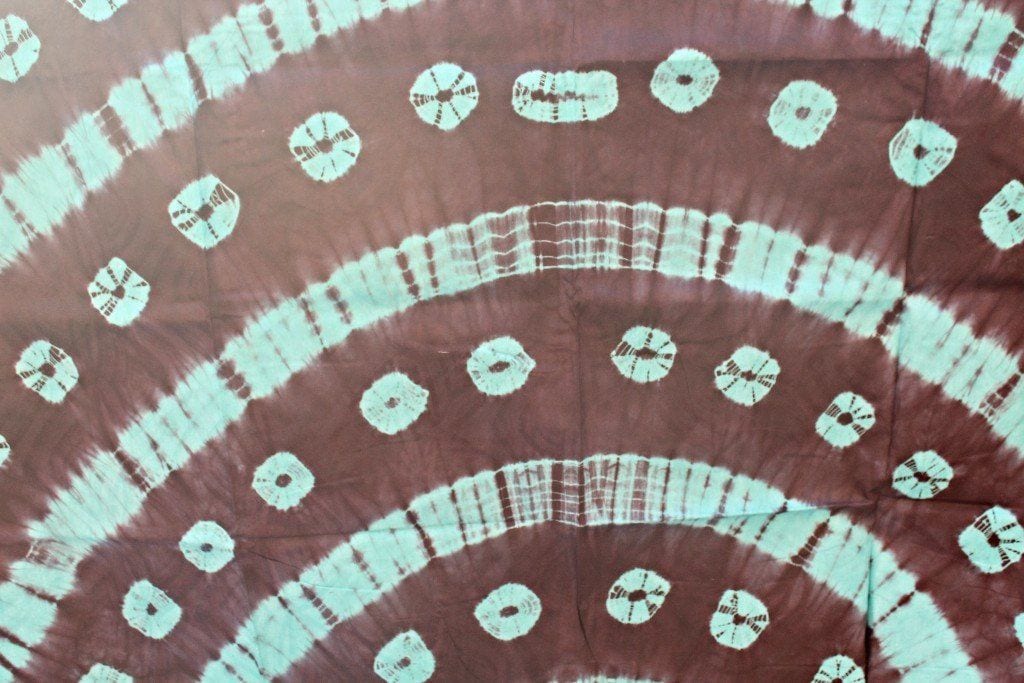
Letter to a mentor
Hi Rachel,
I have been reading a short book called ‘Let the Circle be Unbroken’ by African anthropologist Dr. Marimba Ani and ‘Afro-pessimism, an Introduction’ by Frank B. Wilderson. Ani defines ethos as an emotional substance of a cultural group with a common set of experiences, while worldview is the way in which people make sense of their surroundings and life.
African ethos and worldview are predicated on spirit, which is our life, harmony and constructive energy, writes Ani, while Western world view encompasses power, control and destruction while realities are split into opposing pairs such as white vs. black. Wilderson defines Afro-pessimism as a shared understanding of slavery, race and foundations of anti-blackness in which black bodies are constantly treated as properties.
Several arguments in both texts are relevant to our current context of grappling with the COVID-19 pandemic in Canada and the rise of anti-black discourses, images, violence, surveillance and micro-aggressions.
Ani’s work makes clear distinctions between an African ethos and worldview versus the worldview of the Western world. Ani argues that what has kept us together as African peoples, especially throughout centuries of trauma from slavery, colonialism and racial capitalism, was our spirit.
That spirit can only be defined on a deepest level through our relationships with friends and family, our customs, our religion of love and harmony and interconnectedness with time and space. Spirit, in an African sense, cannot be rationalized and quantified the way in which the Western world does.
I was immediately reminded of the work that you, El Jones, Lynn Jones, Dr. OmiSoore Dryden and other outstanding black women scholars and activists have been doing while black lives have been subjected to poverty, deprivation and violent disposability.
Establishing the Black Lives Matter Community Solidarity Fund was not the usual act of charity for the poor and most vulnerable population in Canada- an approach often associated with white, messianic community interventions to structural problems rooted in racism and anti-blackness. I see the Black Lives Matter Community Solidarity Fund as the epitome of African ethos and worldview- a genuine effort to provide humanization to a community whose existence is ignored, forgotten, made deliberately invisible and exists as a mere ‘racial shadow’ in a white, setter-colonial society. The Black Lives Matter Community Solidarity Fund seeks to foster a spirit of harmony while we are being urged to be separated and to self-isolate.
See also: Community fund making a big difference for African Nova Scotians hit hard by coronavirus fallout
Keep in mind, separation and isolation are not new concepts for the black community. These notions have existed long before the outbreak of COVID-19, but they are now used as political weapons to aid in villainizing, criminalizing and even murdering black bodies.
These actions manifest through the unchecked, racist commentary presented by Premier Stephen McNeil, chief medical health officer in relation black communities in Nova Scotia carelessly disregarding COVID-19 rules. We also see it in the extreme policing methods deployed against black communities and the deliberate state decision to not collect race disaggregated data on COVID-19 impacts. The examples also include chastising Dr. OmiSoore Dryden in which she advocated strongly for race-disaggregated data on COVID-19.
See also: An open letter to Premier Stephen McNeil and Chief Medical Health Officer Dr. Robert Strang
All these events are inter-connected as they form part of what Wilderson (2015) calls, “white society performing social death on black bodies and black voices”. Social death includes gratuitous violence on black people in any shape or form, at any time. It is not dependent on the black person committing a wrong action or breaking the law but blackness in and of itself is criminalized. It is you, as a black person being excluded from your association with your unique group or community and isolated in white society as a form of torture and the final thing is that, there is dishonour in the nature of your existence as a black person.
This is why a time of separation and isolation is not only mentally and spiritually devastating to our community, but it is also politically important to white interests. That is why it is also politically important for us, a community, to be critically aware of why these events are happening.
Isolation and separation bring ‘Yurugu’ (“whiteness”) on full display where a pandemic exacerbates the disproportionateness of our lives. Wealthier white men and women citizens and permanent residents can stockpile groceries, enjoy better job security with benefits and work from home with ease due to comforts gained from their racial privileges.
On the other hand, there are members of our community who are more vulnerable to social, economic and health impacts of COVID-19 as they are looked upon as “essential workers”. They are “essential workers” not because their lives and their labour are valued, but because they are necessary to fulfill the expansion of the state’s economic interests. The paradox of “essential workers” lies in the fact that they can be disposed at any time and will be recorded in an unracialized death toll as just another statistic.
There are members of our community who are in precarious employment arrangements such as low-waged, working longer hours, unemployed, engaged in contract work, seasonal work and casual work. All of these arrangements lack social security benefits, job security, unionization and a steady stream of income that wealthier whites would enjoy as evident in the 2019 Canadian Centre for Policy Alternatives Report- Canada’s Colour Coded Income Inequality.
See also: Census 2016: African Nova Scotian poverty rates through the roof, unemployment numbers terrible
There are members of our community who are scraping to pay rent and other major living expenses. There are members of our community who are further exposed to violence, sexual exploitation and abuse on the basis of gender, geographic location and sexual orientation. Separation and isolation are devastating to our community and I further begin to realize how important the work of black scholars and social justice activists is. We are fighting against what Ani calls, “an unnatural, technical efficient order in which Western society is built for the sole purpose of black people experiencing painful alienation”.
We are fighting for our humanization that is constantly under threat. We are fighting against what Hartman (2016) calls, “the innumerable uses of our bodies to the Western empire- converting labour into cash, speculated and traded into commodity, worked to death, taken, tortured and propagated like a crop similar to slavery.
We are fighting for the retention of our spirits, which is our life force. It is this work of community solidarity and resistance against racial capitalism, anti-blackness, colonialism and imperialism that will keep the spirit of African peoples here in the West alive.
After all, as Ani said, “our bodies were harmed but our spirit does not die”. Whether we tweet, WhatsApp, Facebook, write letters, petitions, sing our songs, dance, check in on families or friends, donate, volunteer with safety, chat back to Yurugu without fear, laugh and cry with each other- these are all retentions of the African ethos.
This pandemic has induced an air of uncertainties but what I am most certain of is that the pandemic will create the need for an unbroken circle among our people.
Tina with love❤✊🏿
Tina Renier is a graduate of the Spring 2020 class with a M.A. in International Development Studies, and a former Teaching Assistant in the Social Justice and Community Studies Department, Saint Mary’s University.
With a special thanks to our generous donors who make publication of the Nova Scotia Advocate possible.
Subscribe to the Nova Scotia Advocate weekly digest and never miss an article again. It’s free!




Probably one of the best articles I have read regarding Covid-19 and the racial impact of the pandemic. Highlighting not just Canadian black voices which is often distorted or completely ignored, but as the author eloquently points out the same fate befalls black voices globally. Mostly all other articles paint this systematic dismissal of black pain as an issue being with system oversight, thus nothing more than a long series of coincidences and accidents. Going no further then to make the blanket statement that the failure is do to individual institutions. Which one would assume are living entities and not living people with their own politics and world views, composing and maintaining them. This article however delve deeper into not deconstructing these institutions but the people themselves and their pyschological disposition position which actually governs them and dictates the decision making. I love how she is one of the few writers who can speak on race beyond the superficial level but delve deeper into what I believe she called the Asili, meaning the cultural make-up and world view of a people supported by historical context. I enjoyed how she can articulate that the current social status all black people are condemned too under European hegemony, is anything but accidental but very much intentional. Thus Covid-19 did not introduce black life to a new reality of alienation and victimization, but simply exacerbated and making plainly obvious a old continually on going black reality. Which is the disposability of Black life(social death) under global white aggression/domination… I very much look forward to reading more works from this very insightful intelligent writer. My Grandpa taught me the devil hides in the details, which is why they don’t want us to notice them. So no matter how small or insignificant something may seem, it might be that little piece of the puzzle that changes the whole thing and make a world of difference… I can learn alot from such a in indepth and critical scholar and look forward to learning alot more from M.A. Renier.
Thanks for writing this article and speaking to the racial question that is embedded in this COVID-19 drama-cum-tragedy.
I am wary of charity schemes in the same that I believe the way that the Black Panthers’ food give-away programme was organized was wrongheaded. If food is what the people want, they must be the architects of its conceptualization and execution.
As soon as the activists move on to other priorities, it will be the end of the charity programme. As organizers, we must give emphasis to building the capacity of the construct their self-managed projects, programmes and institution.
The work of emancipation should not be outsourced to activists and organizers, many of whom do not live in communities populated by the wretched of the earth.
I am opposed to remittances being sent to Jamaica for people to buy food when many of them have access to growing areas. The culture of dependency is a sure-fire to maintain the system of control wherein the locus of control of the downpressed/oppressed is externally located.
Organizing the people is much harder than mobilizing them so we tend to go for the latter.